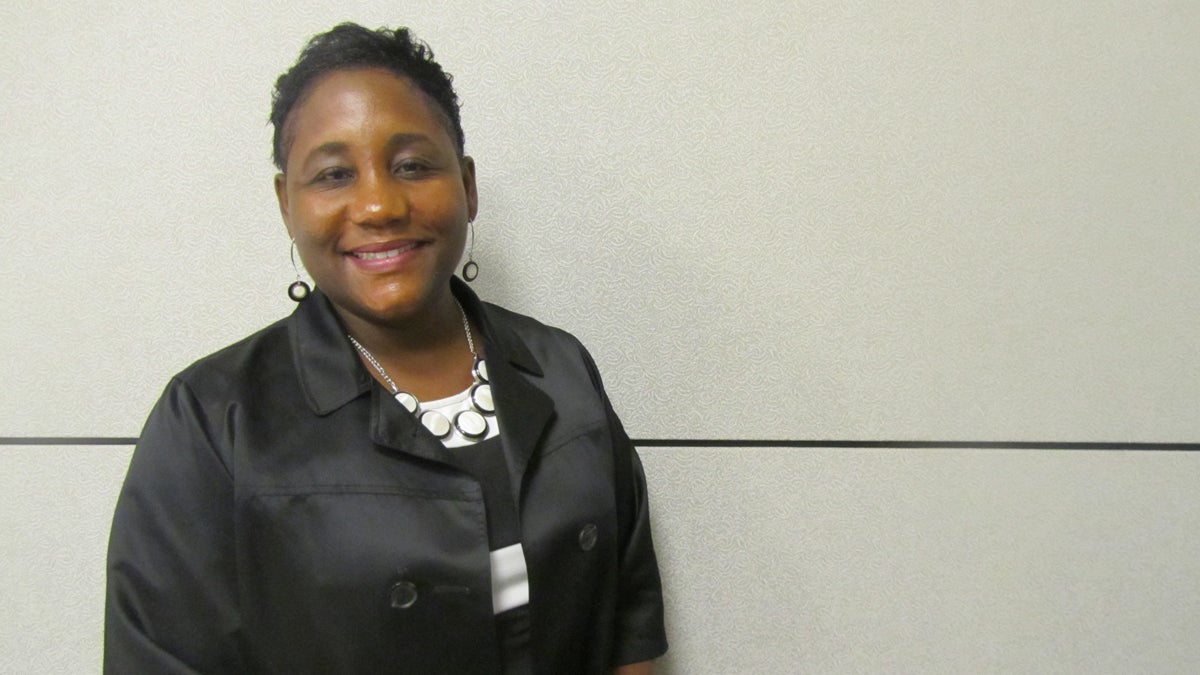Pa. nurses pushing for greater role in evolving world of health care

Roberta Waite, of the College of Nursing and Health Professionals at Drexel University and the 11th Street Health Center, is bracing for an onslaught of patients. (Elana Gordon/WHYY)
With the health system bracing for an influx of patients in the months ahead, area nurses hope to take a greater lead in handling those needs. They also hope to be visible resources in the health-care marketplaces, slated to open for enrollment in less than a month.
Under the Affordable Care Act, the online marketplaces, partnered with income-based subsidies and changes to policy rules, mean that millions of people could soon gain health coverage. Roberta Waite, of the College of Nursing and Health Professionals at Drexel University and the 11th Street Health Center, says handling the increase is going to be a challenge.
“A huge part is how many more people, capacity wise, can we take in,” says Waite. “Because right now we’re almost at capacity.”
Waite’s center, like others, has plans to expand, but it will be hard to keep up. Nurses, she says, could really help with this. But many now face limitations.
State rules
In Pennsylvania, advanced-practice nurses can manage common illnesses and prescribe certain drugs, as long as they have an agreement with a doctor.
That hinders a practitioner’s ability to, well, practice, said Ken Miller with the American Association of Nurse Practitioners. He hopes pending legislation would change this, allowing nurses to work to their full abilities in places that need more providers.
“We can turn out nurse practitioners on a much more rapid basis than physicians can turn out primary care docs,” Miller said.
Just under half of states have such policies, but Pennsylvania’s physician community is at odds with the approach.
Dr. Richard Schott, a cardiologist in the Delaware Valley and president of the state’s medical society, said it’s important to have a doctor on board. Even without one, he doesn’t think nurses are any better positioned to solve access problems, especially in rural areas.
“There’s no reason to expect that a nurse practitioner would be any more motivated to want to gravitate to less popular areas than a physician,” he said.
Private insurance issues
Nurses are also pushing for changes to credentialing and direct reimbursements from private insurers. According to the Philly-based National Nursing Centers Consortium, about one quarter of HMO plans don’t include nurse practitioners as primary care providers. Instead, a doctor has to be involved. The region’s largest insurer, Independence Blue Cross, will soon independently contract with nurse practitioners.
Either way, both nurses, doctors and others in the health system say when it comes to improving care in the months ahead, better coordination and a team approach will be essential.
Disclosure: Independence Blue Cross supports WHYY
WHYY is your source for fact-based, in-depth journalism and information. As a nonprofit organization, we rely on financial support from readers like you. Please give today.

